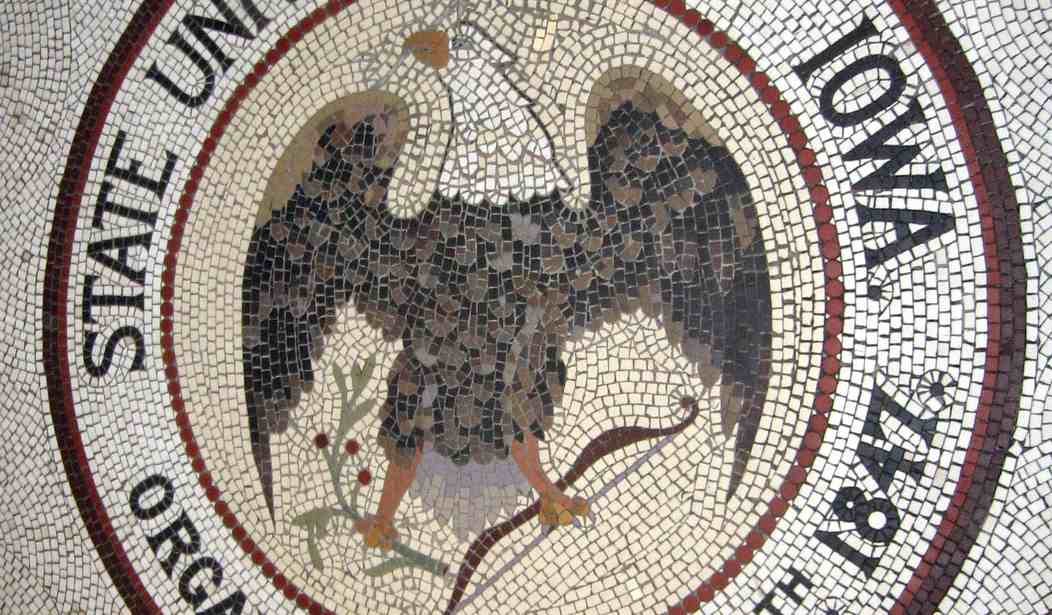On Monday, Intervarsity Christian Fellowship filed a discrimination lawsuit against the University of Iowa following that institution’s mass deregistration of 38 student groups last month. The university first targeted Intervarsity because it requires leaders to sign a Christian statement of faith. This requirement is essential for freedom of association, and the university acted unjustly in singling out Intervarsity and these 38 groups, the lawsuit claims.
“In InterVarsity Christian Fellowship v. University of Iowa, a student group is suing the University after it was kicked off campus for requiring its leaders to agree with its faith,” the Beckett Fund for Religious Liberty, which is representing Intervarsity, announced in a press release Monday. “Almost 40 other student groups —including the Sikh Awareness Club, the Chinese Student Christian Fellowship, the Imam Mahdi Organization, and the Latter-day Saint Student Association—were also expelled by the University at the same time.”
The battle began last year, when the university exiled Business Leaders in Christ (BLinC), a Christian group that required leadership to embrace Christian beliefs, including the idea that marriage is between one man and one woman. BLinC sued the university, claiming that the school cannot treat BLinC differently from other, non-religious groups.
As if to illustrate just how monumental the right of free association is, the university deregistered 37 other groups, including the German Club, the Imam Mahdi Organization, the Japanese Students and Scholars Club, the Latter-day Saint Student Association, the National Association for the Advancement of Colored People (NAACP), the Sikh Awareness Club, Wall-Breakers, and Young Americans for Liberty.
“According to the university, a Baptist, Muslim, or Sikh club is committing religious discrimination if it wants to have a leader who is Baptist, Muslim, or Sikh,” Katie Glenn, policy council at the 1st Amendment Partnership (1AP), told PJ Media. “This policy defies common sense and dilutes campus ministries.”
The policy also arguably violates the plain text of the First Amendment to the U.S. Constitution: “Congress shall make no law … abridging … the right of the people peaceably to assemble.”
According to the Intervarsity lawsuit, “The University’s purge of dissenters causes uniquely existential harm to religious groups.”
“A group’s leaders are the embodiment of its identity and mission,” the suit claims. “A religious group denied religious leadership will ultimately cease to be religious.” Furthermore, the university showed its discriminatory purpose by not kicking out various other clubs that are allowed to choose leaders based on shared identity and mission.
“For instance, the University (rightly) allows fraternities to have only male leaders and members, and female athletic clubs to have only female leaders and members,” Intervarsity notes. “Republicans and Democrats can each choose to be led by those who share their political beliefs.”
“Yet while [the University of Iowa] makes broad exceptions for political groups, fraternities, sororities, and sports clubs to select both their leadership and membership, it denies a narrower accommodation for religious groups to select their leaders,” Intervarsity damningly adds.
This case illustrates that the threat to religious liberty on college campuses — and at the University of Iowa in particular — is not just directed against Christians. Muslims, Mormons, and Sikhs have found themselves at the wrong end of this university’s policy, while sororities and fraternities, along with College Republicans and College Democrats, did not.
This discrimination against religious (and other) groups casts a dark shadow over students’ freedom. “The University’s attempt to control religious groups in this way impermissibly entangles the government in religious affairs,” Intervarsity argues in the suit. “The State of Iowa has no business telling religious groups who their religious leaders should be.”
The Beckett Fund laid out three key reasons why this case is pivotal for religious liberty. “There is a nation-wide trend of curbing free speech — especially religious speech — on collage campuses,” the law firm noted. Secondly, “religion is a natural part of human culture and should not be scrubbed from the public square.”
Finally, the law firm cited the 2012 Supreme Court case EEOC v. Hosanna-Tabor, which “guarantees the right of religious groups to select their own leaders without government interference or entanglement.”
Many on the Left have started putting the phrase “religious freedom” in scare quotes, as though the movement for such liberty is merely a smokescreen to push discrimination and intolerance. This case demonstrates how wrong that interpretation is, and the potential for religious freedom battles to threaten all sorts of faith communities — from Christian to Muslim to Sikh.









Join the conversation as a VIP Member